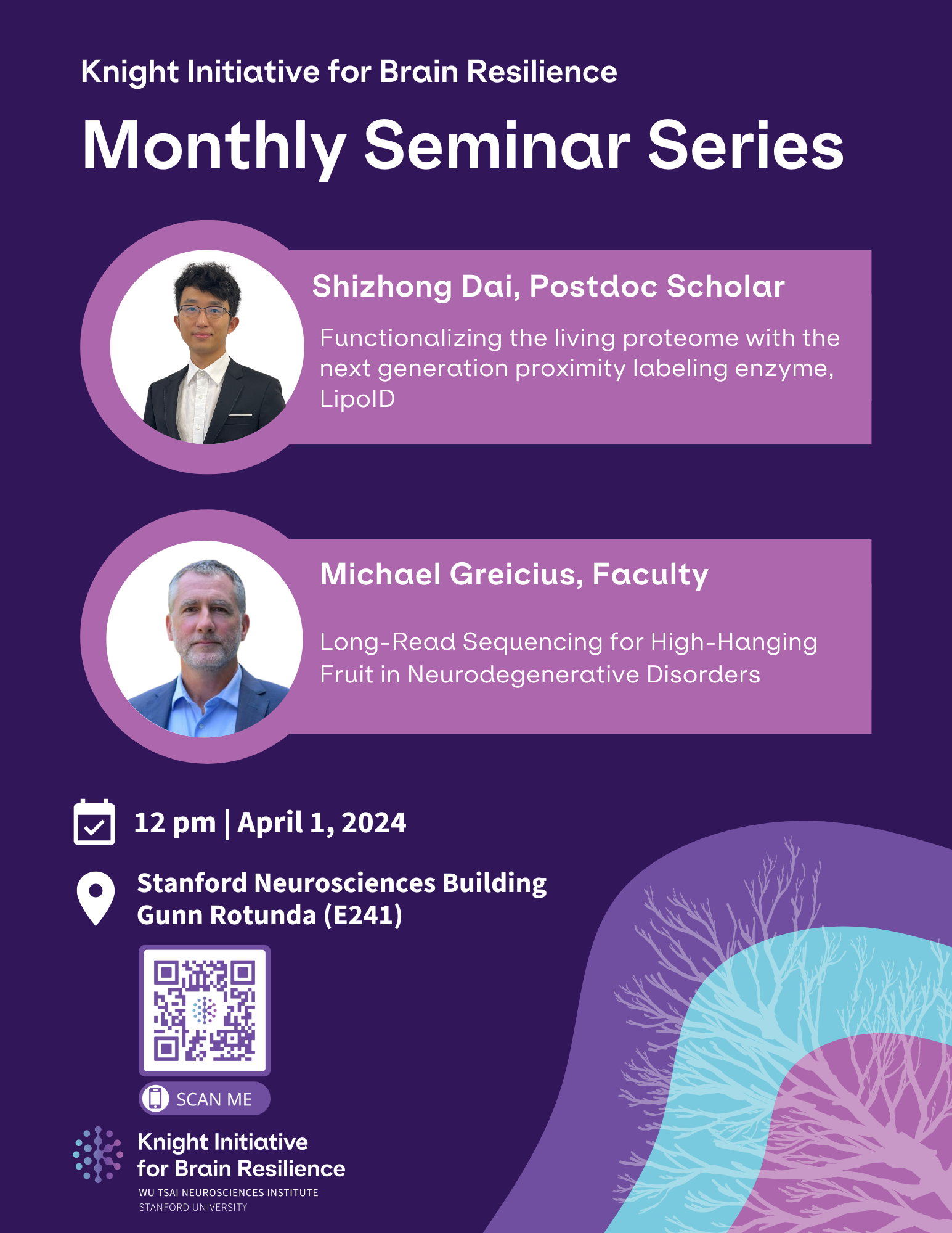Event Details:

The first Monday of each month, the Knight Initiative for Brain Resilience will host monthly seminars to bring together awardees, affiliated professors and students for a series of 'lab meeting' styled talks. Two speakers will discuss their brain resilience research, experiences in the field, and answer questions about their work.
To support our researchers' participation in this open science ‘lab-meeting style’ exchange of ideas, these seminars are not streamed/recorded and are only open to members of the Stanford community.
Shizhong Dai, Stanford University
Functionalizing the living proteome with the next generation proximity labeling enzyme, LipoID
In the Ting lab, Shizhong is developing the next-generation proximity labeling methods for in vivo protein labeling. Proximity labeling is a method for discovery of molecules that reside within a few nanometers of a designated molecule or organelle, within living cells. In PL, an enzyme is genetically targeted to an organelle of interest, or fused to a protein of interest. Addition of a small-molecule substrate produces a short-lived, reactive intermediate that diffuses out of the enzyme active site and covalently tags nearby/interacting proteins. After cell lysis, the tagged molecules are enriched using an affinity reagent such as streptavidin and identified by mass spectrometry. Despite becoming a cornerstone technique, PL methods still have considerable room for improvement regarding in-vivo compatibility and substrate diversity. Shizhong and coworkers have developed a new PL enzyme, LipoID, by starting from the E. coli lipoic acid ligase LplA. LipoID can utilize a wide range of non-biotin substrates to catalyze fast proteomic labeling (1 minute or less). The unique behaviors of LipoID allow us to circumvent background from endogenous biotin and potentially protein dynamics in living animals. The diverse substrate scope of LipoID also allows us to visualize and functionalize living proteome without using mass spectrometry.
Mike Greicius, Stanford University
Long-Read Sequencing for High-Hanging Fruit in Neurodegenerative Disorders
Our group has generated long-read sequencing whole genomes from roughly 1000 older individuals across several diagnostic categories including healthy aging, Alzheimer's disease, and Parkinson's disease. This includes data from ~500 European-ancestry individuals and ~500 African-ancestry individuals. In the talk I will discuss some of our initial findings from these cohorts with relevance to CSF1R/HDLS, APOE/Alzheimer's disease, and TMEM106B/frontotemporal dementia.

